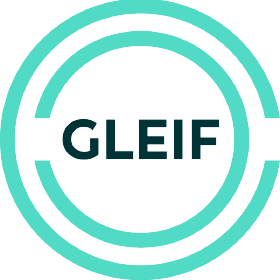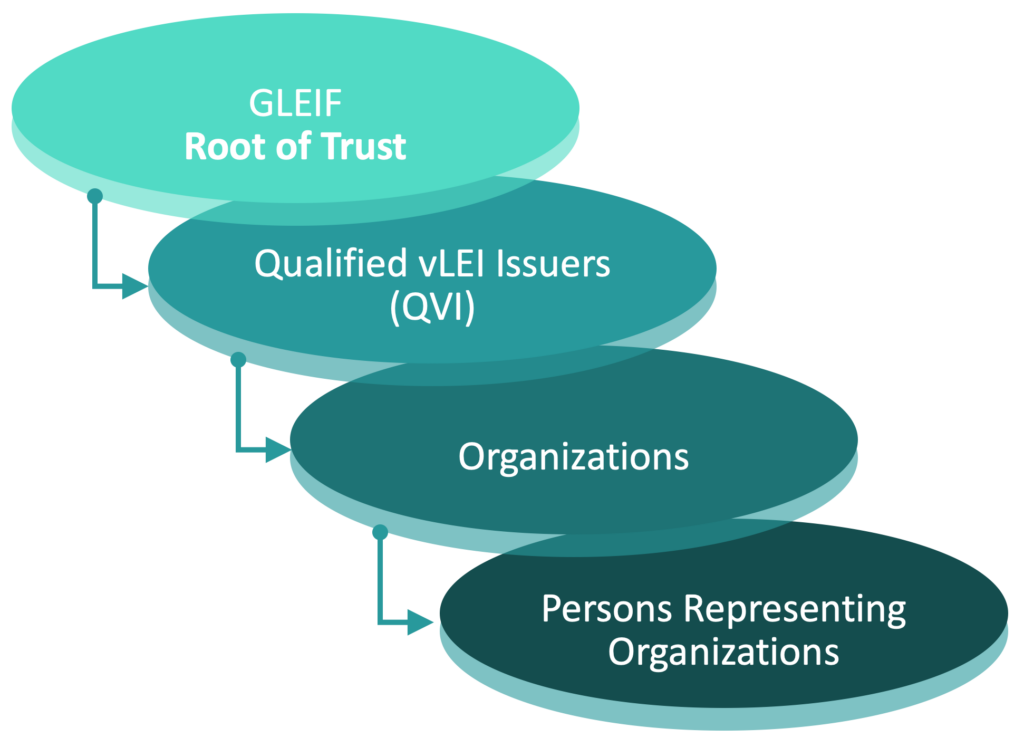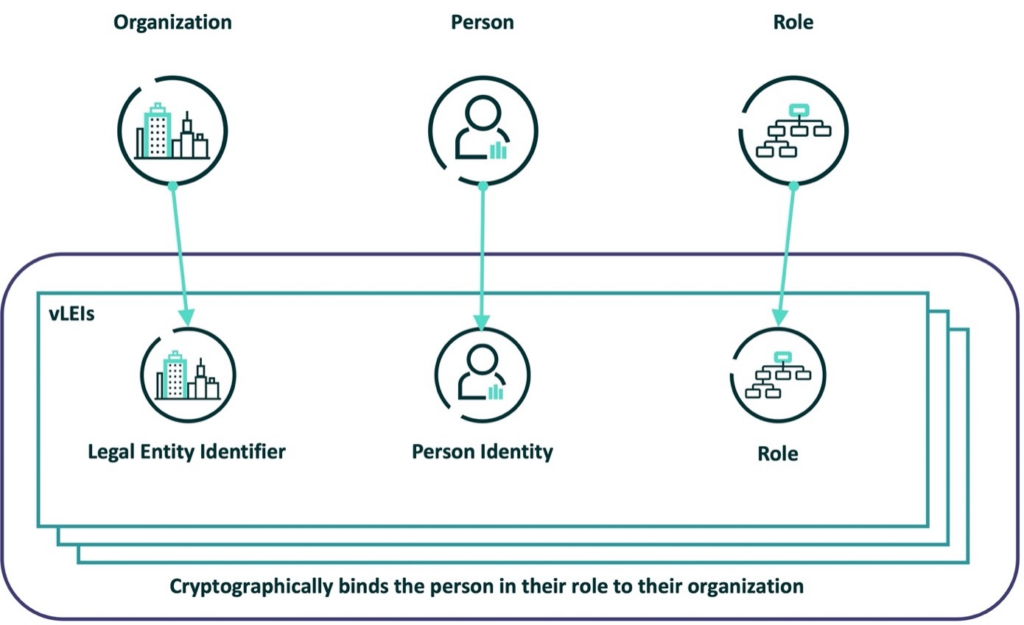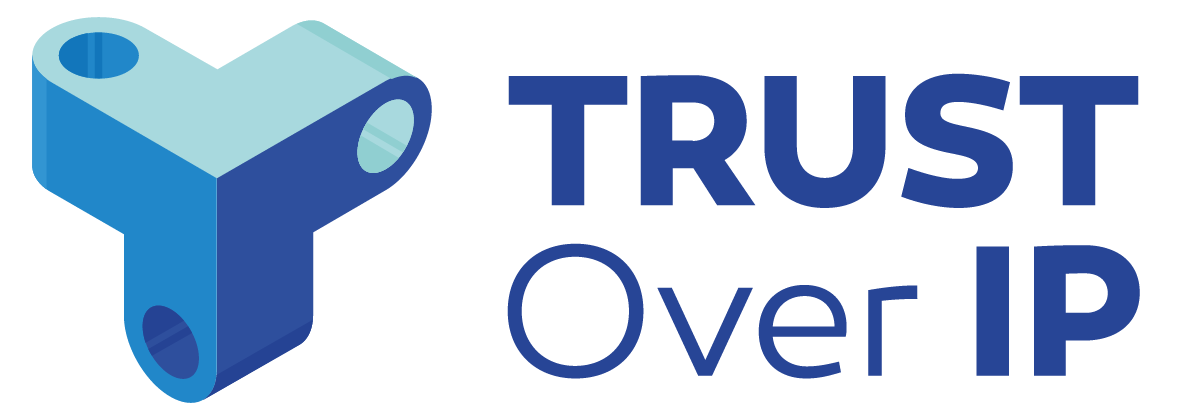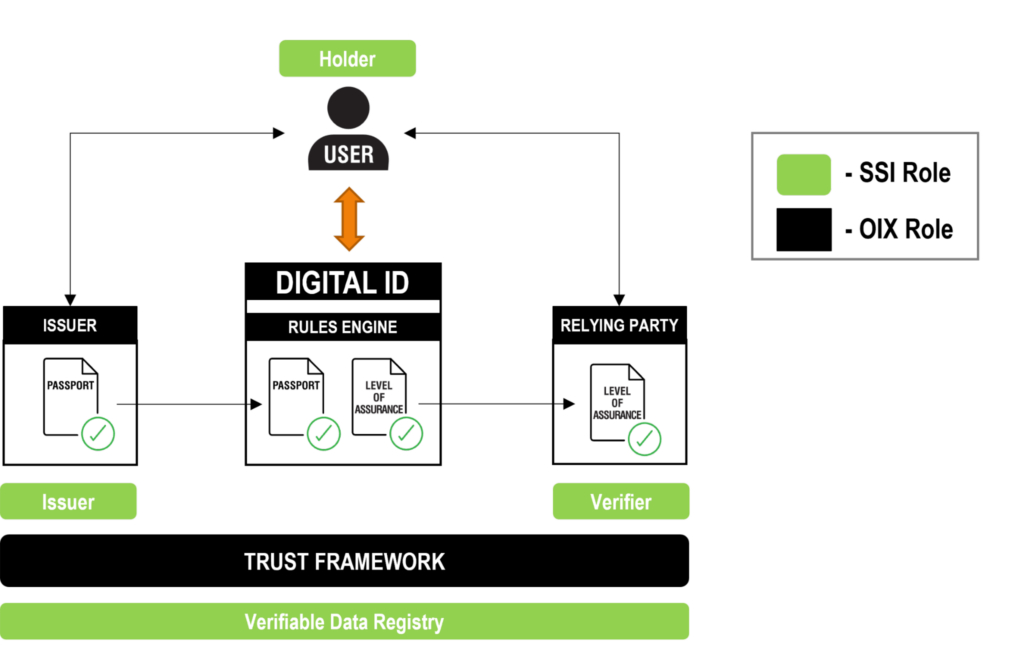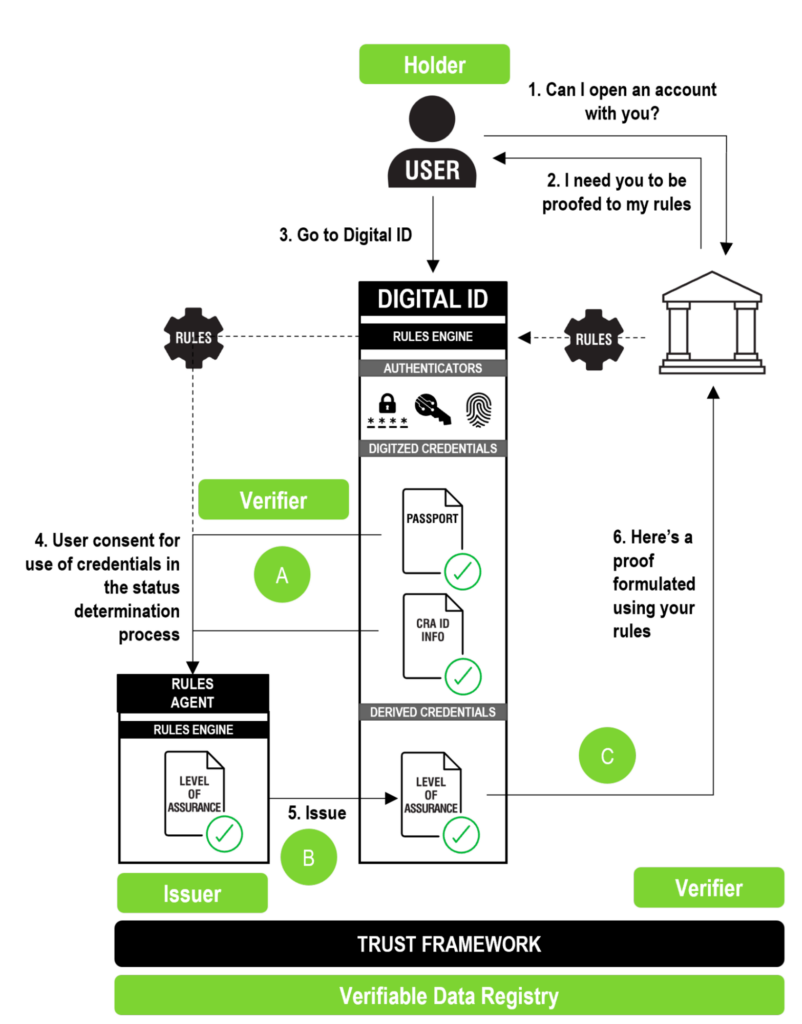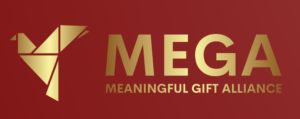Governments, nonprofits and private sectors across finance, health care, enterprise software and more team up with Linux Foundation to enhance universal security and privacy protocols for consumers and businesses in the digital era
The ToIP Foundation is being developed with global, pan-industry support from leading organizations with sector-specific expertise. Founding Steering members include Accenture, BrightHive, Cloudocracy, Continuum Loop, CULedger, Dhiway, esatus, Evernym, Finicity, Futurewei Technologies, IBM Security, IdRamp, Lumedic, Mastercard, MITRE, the Province of British Columbia and SICPA. Contributing members include DIDx, GLEIF, The Human Colossus Foundation, iRespond, kiva.org, Marist College, Northern Block, R3, Secours.io, TNO and University of Arkansas.
Businesses today are struggling to protect and manage digital assets and data, especially in an increasingly complex enterprise environment that includes the Internet of Things (IoT), Edge Computing, Artificial Intelligence and much more. This is compounding the already low consumer confidence in the use of personal data and is slowing innovation on opportunities like digital identity and the adoption of new services that can support humanity.
Without a global standard for how to ensure digital trust, these trends are bound to continue. The ToIP Foundation will use digital identity models that leverage interoperable digital wallets and credentials and the new W3C Verifiable Credentials standard to address these challenges and enable consumers, businesses and governments to better manage risk, improve digital trust and protect all forms of identity online.
“The ToIP Foundation has the promise to provide the digital trust layer that was missing in the original design of the Internet and to trigger a new era of human possibility,” said Jim Zemlin, executive director at the Linux Foundation. “The combination of open standards and protocols, pan-industry collaboration and our neutral governance structure will support this new category of digital identity and verifiable data exchange.”
The Linux Foundation’s open governance model enables the ToIP Foundation to advance a combination of technology and governance standards for digital trust in a neutral forum that supports pan-industry collaboration. An open governance model that can be integrated into the development of the standards for digital trust is essential where the business, legal and social guidelines for technology adoption impacts human trust and behavior.
The ToIP Foundation will initially host four Working Groups. The Technical Stack Working Group and the Governance Stack Working Group will focus on building out and hardening the Technical and Governance halves of the ToIP stack, respectively. The Utility Foundry Working Group and the Ecosystem Foundry Working Group will serve as communities of practice for projects that wish to collaborate on the development of ToIP utility networks or entire ToIP digital trust ecosystems.
The ToIP Foundation will host an all-digital launch event on May 7, 2020 at 9AM PDT that will feature a panel discussion, interoperability demonstration and live Q&A. Register now for the live event. A second event will be hosted for the APAC region.
For more information about the ToIP Foundation, please visit www.trustoverip.org
Steering Member Comments
Accenture
“The internet and digital technologies are a critical part of the way we engage with each other and with organizations. Accenture has a deep commitment to developing solutions to build trust, protect privacy and put control of an individual’s data squarely in their hands. The Trust over IP (ToIP) Foundation is bringing together a powerful mix of experts and doing it at the exact right time given the urgent need to encourage greater adoption and increase trust in data privacy and ownership,” said Christine Leong, managing director, global lead for Decentralized Identity & Biometrics at Accenture.
BrightHive
“Now, perhaps more than ever, networks of public and private sector organizations know the value that can be created by collaborating with one another around their combined data to create novel insights and better align their work. But they also want to collaborate in the most responsible way possible. The work of the Trust over IP Foundation will radically strengthen the infrastructure of responsible data sharing by establishing a global standard for digital trust—ensuring that the very way that data is exchanged and verified creates a much-needed layer of security, privacy and trust. BrightHive is excited by the promise of this standard, and proud to partner with the other members to help see it realized,” said Matt Gee, CEO, BrightHive.
Cloudocracy
“Trust is the foundational element of all relationships between government, organizations, and each of us as individuals. Trust at Internet-scale, serves our greater global community and is best accomplished by communities of trust ecosystems. The Trust Over IP Foundation is the next stage of enabling this journey globally. The paradigm-shifting model of decentralized, person-centric identity is likely one of the most important breakthroughs in data privacy, cyber security and unlocking business value in many years. Cloudocracy seeks to facilitate coalitions of government, supply-chains and individuals to embark on journeys to establish value-based trust ecosystems towards achieving highly secure and empowered private ecosystems and the public-private ‘Internet of Value.’ The global shift will go beyond enabling government and organizations to reduce costs, complexity and add value but will also help steer to a better compass heading in protecting individual data privacy, health and biometric information, while also reducing risks and economic impacts of cyber security data breaches,” said Will Groah, executive director, Cloudocracy.
Continuum Loop
“The leaders we work with know that trust on the Internet isn’t working. They want to start building deep trust with their customers and partners. Our clients are investing, as are we, in the Trust Over IP Foundation. We all want to make sure we are involved in building the digital trust layer that the Internet needs. The technology works – now it is about building business cases and governance,” said Darrell O’Donnell, president and CEO, Continuum Loop.
CULedger
“The credit union movement is based on the idea that trusted interactions between people connected by a common bond are the best interactions. A self-sovereign, secure, trusted identity, like MemberPass, is essential in the world ahead, and CULedger is paving the way for credit unions and financial cooperatives worldwide to pioneer this important effort and bring this frictionless digital experience to more than 270 million credit union members. The work developed out of the Trust over IP Foundation will be the cornerstone to facilitate these trusted interactions in the new digital age. We are excited about the opportunity to be working with other leading organizations in support of this effort,” said John Ainsworth, president/CEO, CULedger.
Dhiway
“Dhiway is happy to join the Trust over IP (ToIP) Foundation as one of the founding members. Our strategic initiatives are designed to bring a higher degree of assurance to the exchange of data between peers, over the Internet and other digital networks. Our participation is aligned with our vision to make the world more transparent and trusted, using digital frameworks that can be universally referenced, understood and consumed. We intend to contribute our knowledge and expertise to support the ToIP foundation in its mission to build an interoperable architecture for Internet-scale digital trust – empowering a growing ecosystem of companies and communities to exercise control over their digital assets. It’s encouraging to see the open collaboration that has led to the formation of this Foundation, and we are humbled and thrilled to be a part of this pioneering effort,” said Satish Mohan, Founder & CTO, Dhiway.
esatus
“On our mission of enforcing information security, strong trust relationships are essential. We need them to be equally strong in the real world and online. The Trust over IP Foundation facilitates easy composition, ramp-up and maintenance of digital trust components. Conveying real-world trust online is ultimately possible at flexibility and scale. esatus enterprise solutions employ digital trust components already, making next-gen security and privacy available to its customers today. Being a founding member of the Trust over IP Foundation is a natural fit,” said Dr. André Kudra, CIO at esatus AG.
Evernym
“Evernym believes the only way to truly solve the avalanche of trust problems on the Internet is with an open standard and open governance model that is as universal as the TCP/IP stack that created the Internet itself. We have helped build the architecture of the ToIP stack layer by layer for the past three years, including the W3C Verifiable Credentials and Decentralized Identifiers standards that are at the heart of this new model, because we believe it will unlock a new explosion of value for every person, business, community and government using digital communications. We are thrilled to help stand up the ToIP Foundation at the Linux Foundation and hope that it attracts every company and contributor who wants to build a strong and lasting trust layer for the Internet,” said Drummond Reed, chief trust officer at Evernym and co-editor of the W3C Decentralized Identifier (DID) specification.
Finicity
“The Internet has fueled incredible innovation over that past few decades. And yet it has been significantly handicapped due to a general lack of trust. As we solve the trust dilemma, we will see a rapid acceleration of innovations that will change the way we do business, connect with others and consume information and entertainment,” said Nick Thomas, president & chief scientist and innovation officer, Finicity. “Finicity looks forward to advancing digital trust standards through its participation in the Trust over IP (ToIP) Foundation.”
IBM
“In today’s digital economy, businesses and consumers need a way to be certain that data being exchanged has been sent by the rightful owner and that it will be accepted as truth by the intended recipient. Many privacy focused innovations are now being developed to solve this challenge, but there is no ‘recipe book’ for the exchange of trusted data across multiple vendor solutions,” said Dan Gisolfi, CTO, Decentralized Identity, IBM Security. “The new Trust over IP Foundation marks an evolutionary step which goes beyond standards, specs and code, with the goal of creating a community-driven playbook for establishing ‘ecosystems of trust.’ IBM believes that the next wave of innovation in identity access management will be for credential issuers and verifiers to partake in these ecosystems, where trusted relationships are built upon cryptographic proofs.”
IdRamp
“Formation of The ToIP Foundation will transform and improve how digital services operate. Traditional centralized identity systems are hinged to vast security vulnerabilities that are not sustainable in a growing digital economy. Centralized services for things like mufti-factor authentication or social login encumber user flow and unnecessarily expose sensitive information to third parties. Decentralized systems resolve these problems but struggle with interoperability and standards to accelerate mass adoption. The Trust Over IP Foundation will help formalize and simplify adoption of Trust as a basic digital utility for everyone. The TOIP stack provides the foundation for a new generation of digital identity services. These services will provide high security frictionless interaction that put the user in control of their personal data. Organizations will establish personal connections with employees and user communities that are immune to the vulnerabilities of centralized systems. Individuals will be able to connect with one another without exposing personal information to the mediators that regulate digital interactions today. This will help businesses move beyond complex identity security investments that erode the bottom line and slow innovation. Verifiable digital trust in a decentralized data economy will open a world of possibilities for all individuals and businesses. As a founding member of the ToIP foundation, IdRamp is committed to helping businesses build a new decentralized digital economy that will evolve organically from traditional centralized systems,” said Mike Vesey, CEO, IdRamp.
Lumedic
“As the first representative of the health care industry on the Steering Committee, Lumedic sees tremendous potential for the Trust over IP Foundation to contribute to health care interoperability,” said Chris Ingrao, chief operating officer of Lumedic. “In confronting the challenges raised by the COVID-19 pandemic, we’ve seen that modern technologies can make a powerful difference when paired with strong governance models. The TOIP stack ensures that the way we exchange trusted health care information meets industry needs at a global scale.”
Mastercard
“We are building a bridge to a world where a person’s identity can be verified immediately, safely and securely for use in the digital world – where now, more than ever, identity is essential for delivery of digital health, education and government services. This cannot be accomplished in isolation. We are collaborating and innovating with governments, technology companies, financial institutions and industry sectors to make this a reality. Our participation within the Trust over IP Foundation builds atop the groundwork we currently have in place to ensure industry standards to guarantee we all transact and interact in a secure, convenient and trusted manner,” said Charles Walton, senior vice president, Digital Identity, Mastercard.
MITRE
“Advances in digital technologies and the Internet have brought great convenience to our lives. But they also present risk – the inability to verify with confidence the identity of those you are connected with leaves us vulnerable to cyberattacks, identity theft, human trafficking, and financial fraud,” said Jim Cook, vice president of Strategic Engagement and Partnerships at MITRE. “As a not-for-profit company working in the public interest with a mission to solve problems for a safer world, we at MITRE are committed to creating a digital world in which people can interact safely and with confidence. We applaud the Linux Foundation initiative to launch the Trust over IP Foundation, and we are honored to be a founding member. We believe real innovation is made possible through open partnership, collaboration and cooperation, and we look forward to contributing to a safer internet through the Trust over IP Stack project.”
The Province of British Columbia
“The Province of British Columbia sees our collective potential to enable global-scale digital trust. The Trust over IP Foundation will be a significant leap forward in establishing a standards-based way for individuals and businesses around the world to interact and transact in safe and secure ways over the Internet,” said Dave Nikolejsin, Deputy Minister of Energy, Mines and Petroleum Resources and Chair of the Board of Digital Identity and Authentication Council of Canada. “From our perspective, this work augments our foundational regulatory role in the economy. In the natural resources sector, we see the potential to empower companies to have a new digitally trusted means to demonstrate due diligence on environmental and social impacts of projects as they work with Indigenous peoples and government. The Province of British Columbia is a founding member of the Trust over IP Foundation to help promote this new era of trusted digital services that everyone can rely on.”
SICPA
“For over 90 years, SICPA has partnered with governments, companies and organizations worldwide, to enable trust in banknotes, identities, products and brands. Our customers’ physical and digital lives are increasingly entwined, at work and at home, and our mission is to help shape trusted digital interactions by collaborating in enabling initiatives like the Trust over IP Foundation. Building trust at a distance and at scale is a global challenge that will form the keystone in delivering the ultimate promise of an interconnected world: to respect the rights, privacy and security of everyone online and offline,” said Kalin Nicolov, Head of Digital Currency, SICPA.
Contributing Member Comments
DIDx
“The Internet lacks a digital trust layer that is not centrally controlled and managed. It is more important than ever to take control of our digital identities and data. The ToIP stack provides full control of digital identities and enables secure, privacy-preserving trust channels with verifiable data exchange. The digital trust layer of the internet. DIDx (a South African based startup) is excited to contribute and build interoperable trust ecosystems across Africa using the ToIP stack and are pleased to join the establishment of the ToIP Foundation together with the Linux Foundation,” said Lohan Spies, CEO DIDx.
GLEIF
“Trust is paramount within today’s digital world and we shouldn’t be afraid to challenge existing online processes for the greater good. The Trust over IP Foundation provides a neutral environment for these important conversations and will facilitate industry collaboration to create a global standard which businesses and consumers can trust. This aligns closely with GLEIF’s work to date as a not-for-profit organization which enables smarter, less costly and more reliable decisions about who to do business with. Our Global LEI System solves the problem of trust for legal entities worldwide, and we look forward to applying our expertise alongside many leading organizations within the foundation,” said Stephan Wolf, CEO, Global Legal Entity Identifier Foundation (GLEIF).
kiva.org
“As internet connectivity and digital services reach the world’s most vulnerable populations, it is paramount that we implement standardized, interoperable systems,” said Matthew Davie, chief strategy officer at Kiva. “The Trust over IP Foundation provides a framework to bring trust to this emerging segment of the digital economy and does so in a way that is consumer-centric and privacy-centric by design.”
The Human Colossus Foundation
“The synergistic domains of trusted identity and immutable semantics are required for organizations to integrate into a new decentralized data economy. The Human Colossus Foundation mission to implement decentralized semantics is aligned with the Trust over IP Foundation. We are proud to contribute to the collaborative projects and initiatives being launched,” said Paul Knowles, Head of the Advisory Board at The Human Colossus Foundation.
iRespond
“Trust is the foundation of every ecosystem, and governance is critical to build trust. The creation of the ToIP foundation is a critical step toward both trust and governance, built on inclusion, transparency and open standards. We expect ToIP to be part of the essential glue that binds decentralized networks and identity. The disadvantaged beneficiaries we serve will likely gain from this critical step to address challenges of guardianship and disruption of traditional barriers to establishing identity,” said Scott Reid, CEO, iRespond.
Marist College
“Marist College has long been on the cutting edge of technology innovation. We are excited to be a founding member of this effort to address digital trust and decentralized identity management at a time when internet transactions are a vital part of higher education and our growing digital economy,” said Michael Caputo, MS, vice president for Information Technology/CIO, Marist College.
Northern Block
“Northern Block is committed to empowering the mass adoption of digital verifiable credentials, which we believe won’t be possible without robust and common standards. The launch of the ToIP Foundation is the beginning of a new chapter for any organization who has been working diligently to enhance trust in life’s experiences. We look forward to supporting increasing participation in trusted ecosystems and burgeoning innovation in consumer experiences through digital trust,” said Mathieu Glaude, CEO at Northern Block.
R3
“R3 remains committed to supporting the development of secure, trusted and privacy preserving digital identity ecosystems and our participation in the Trust over IP Foundation is a reflection of that commitment. Our customers across industries including banking, insurance health care and telecommunications all agree that identity cannot be solved in isolation. With the industry coming together under the Trust Over IP Foundation we can work on the standards that will enable interoperability and unlock new opportunities for all. Our Corda platform is designed to enable private transactions, and by incorporating the work of the ToIP Foundation, we can develop solutions uniquely suitable for self-sovereignty in the digital world,” said Abbas Ali, Head of Digital Identity at R3.
Secours.io
“Our past inability to deal with privacy has cost human lives, because it limits innovation that can save lives. Trust over IP gives government the verification and governance it needs, and the public gets the trust it needs now allowing innovation to save lives,” said Sgt. J. Stirling Ret., Ontario Provincial Police, Provincial SAR Coordinator.
TNO
“TNO has deep involvement in the standardization and ecosystems of self-sovereign identity, including W3C, DIF, Hyperledger, Sovrin, RWoT and IIW. Our national and international partners and customers are looking for full-stack Trust-over-IP solutions. The ToIP approach is unique, as it includes the complexities of the top ‘business’ parts of the Trust-over-IP stack, as well as the governance of all layers. We believe that ToIP provides an excellent ground to contribute and further develop this knowledge base and apply it to many projects in ‘admintech’ and other industry sectors where trust in the provenance of data is essential,” said Dr. Oskar van Deventer, senior scientist Self-Sovereign Identity, TNO.
University of Arkansas
“The Internet was built in the 1970s and 1980s to allow machine-to-machine transfer of information, but it was missing the trust layer that identifies the people, organizations, or objects running those machines. The Trust over IP (ToIP) Foundation is building the technical and governance standards to provide that missing layer, which will enable trusted, secure, peer-to-peer transfers of value. Voices from industry, governments and academia are needed to realize the vision. As an academic partner, the Blockchain Center of Excellence at the University of Arkansas is pleased to join this effort to develop open standards for a trust layer over the Internet,” said Mary Lacity, Walton Professor and Director of the Blockchain Center of Excellence at the University of Arkansas.
About the Linux Foundation
Founded in 2000, the Linux Foundation is supported by more than 1,000 members and is the world’s leading home for collaboration on open source software, open standards, open data, and open hardware. Linux Foundation’s projects are critical to the world’s infrastructure including Linux, Kubernetes, Node.js, and more. The Linux Foundation’s methodology focuses on leveraging best practices and addressing the needs of contributors, users and solution providers to create sustainable models for open collaboration. For more information, please visit us at linuxfoundation.org.
###
The Linux Foundation has registered trademarks and uses trademarks. For a list of trademarks of The Linux Foundation, please see its trademark usage page: www.linuxfoundation.org/trademark-usage. Linux is a registered trademark of Linus Torvalds.
Media Contacts
Beth Handoll
ReTHINKitMedia
beth@rethinkitmedia.com
+1 415 535 8658
